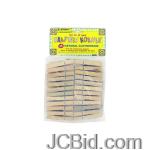
| Updated Blogs |
|
More .....
|
 RSS Feed | Login
RSS Feed | Login Herbal Remedies
Herbal Remedies
Causes, Symptoms and Treatment for Heart Attack
By bruce at 2010-12-21 04:21:49
The heart is a muscle like any other in the body. Arteries supply it with oxygen-rich blood so that it can contract and push blood to the rest of the body. When there isn't enough oxygen flow to a muscle, its function begins to suffer. Block the oxygen supply completely, and the muscle starts to die.
Heart Attack Causes
Over time, plaque can build up along the course of an artery and narrow the channel through which blood flows. Plaque is made up of cholesterol buildup and eventually may calcify or harden, with calcium deposits. If the artery becomes too narrow, it cannot supply enough blood to the heart muscle when it becomes stressed. Just like arm muscles that begin to ache or hurt when heavy things are lifted, or legs that ache when you run too fast; the heart muscle will ache if it doesn't get adequate blood supply. This ache or pain is called angina. It is important to know that angina can manifest in many different ways and does not always need to be experienced as chest pain.
If the plaque ruptures, a small blood clot can form within the blood vessel, acting like a dam and acutely blocking the blood flow beyond the clot. When that part of the heart loses its blood supply completely, the muscle dies. This is called a heart attack, or an MI - a myocardial infarction (myo=muscle +cardial=heart; infarction=death due to lack of oxygen).
Heart Attack Symptoms
Feeling of discomfort in chest: This is one of the common symptoms of heart attack. Symptoms of heart attacks involve discomfort in the center of the chest, which could be mild initially and can lasts for more than a few minutes. There are also chances that the pain goes away and comes back. It can feel like squeezing, fullness or pain, uncomfortable pressure on your heart.
Feeling of discomfort in other body parts: Heart attack symptoms also includes pain or discomfort in one or both arms, jaw, neck in your stomach.
Shortness of breath: This is also one of the major warning signs of heart attack that can occur with or without chest discomfort.
Other warning signs of heart attack: Heart disease signs also include breaking out in a cold sweat, nausea or lightheadedness.
Nervousness, anxiety, sweaty skin.
Paleness or pallor.
Irregular beating of heart rate, that too with an increased pace.
Feeling of impending
These were some of the common symptoms of heart attack, but you need to get aware of other symptoms as well. Many of the symptoms of heart attack can be brought on by digestive disturbances or other less serious conditions. But it is important to go through the proper and required medical tests that can determine the surity of the disease. Heart attacks may differ from person to person, and from heart attack to heart attack. Women may feel a symptom of pain between the shoulder blades rather than crushing chest pain, whereas men feels sever pain in chest, depending upon the condition. But this particular symptom in women may result in the ignorance and in turn delaying seeking treatment, which is actually a big mistake.
Find powerful herbal remedies
Coronary Artery Disease
Heart Attack Treatment
If the EKG shows that there is an acute heart attack (myocardial infarction), the goal is to open the blocked artery as soon as possible and restore blood supply to the heart muscle.
When a heart attack strikes, the key thing to remember is that time equals muscle. The longer the delay in seeking medical care, the more heart muscle will be damaged. There is a window of opportunity to restore blood supply to the heart muscle by unblocking the affected heart artery. Treatments must be done in a hospital and include administration of clot-busting drugs to dissolve the clot at the site of the ruptured plaque and heart catheterization and angioplasty (in which the blood vessel is opened by balloon, often with adjunctive placement of a stent), or both.
Not all hospitals have the equipment or cardiologists available to perform emergency heart catheterizations, and thrombolytic therapy (the use of clot-busting drugs) may be the first step to open the blood vessel and return blood supply to the heart muscle.
Yoga VCD for Heart Diseases
Home Remedies and also more read on gonaturalremedies.com
Permalink | Comments (0)
Comments
To add a comment please login by clicking here
JC Store | JasmineCorp
|
JCBid
|Software
Development |
Domain
Registration | Hosting
| Web
Designing | Buy
Books |
Advertise
with JCSearch |
Whois
|
IP
Locator |
Add
Search |
Shopping
| Store
|
Free Blogs |
Free
GuestBook | Free
E-Cards |
Free
Games |
Free
Tutorials |
Set
as Home | Add
to Favorite
| Suggest
a Site |
Directory
Our Portfolio
| Terms of service
| Free quote
| Tell a Friend
| Special Offer
| Job Opportunities
| games
| Usenet Groups




